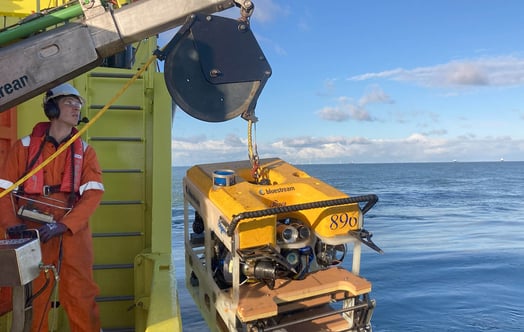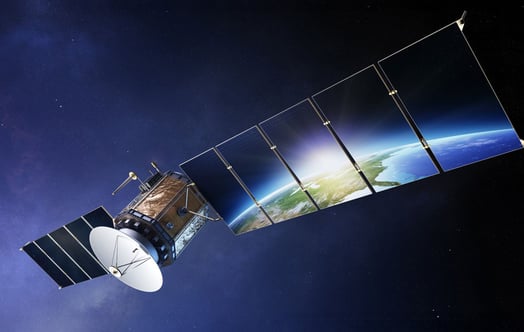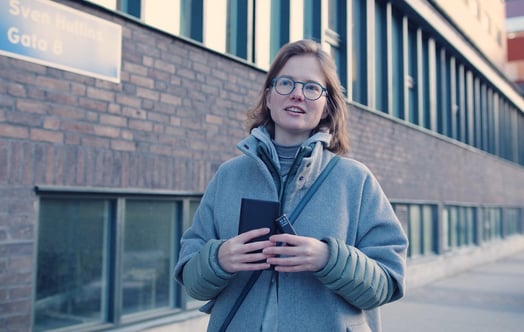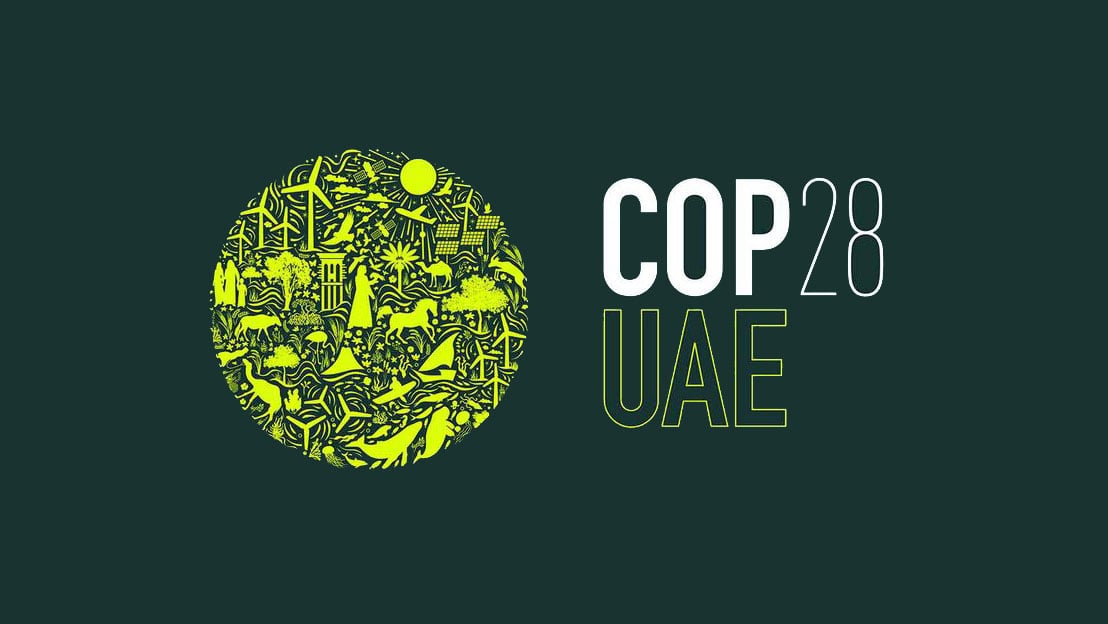
COP28: A world transitioning away from fossil fuels
Annika Ramsköld, Head of Sustainability at Vattenfall, has returned from COP28 to share what has been discussed on the world stage as well as to put the outcome of the UN climate conference in perspective.
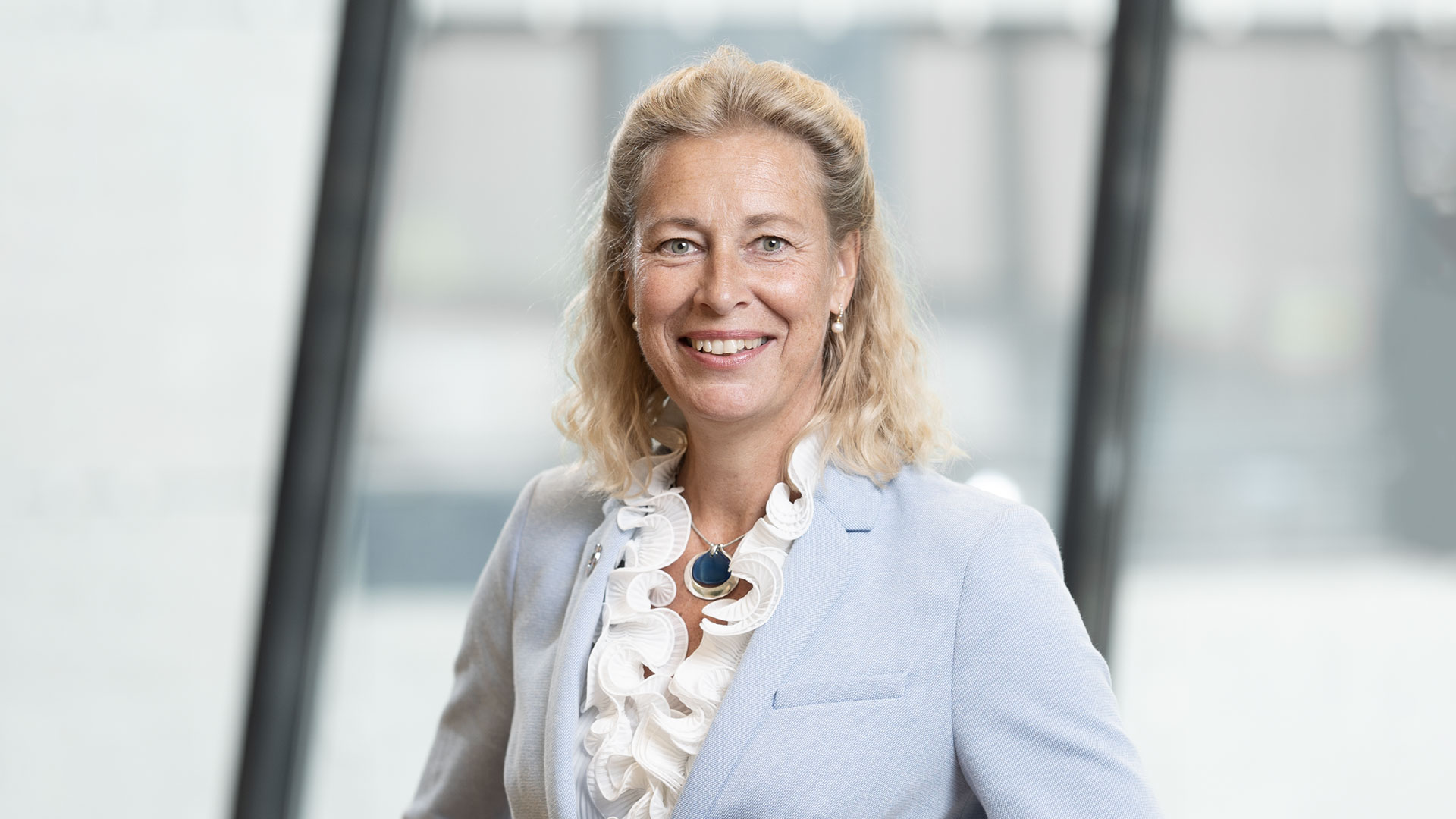
The UN climate conference COP28 in Dubai ended on 13 December after prolonged discussions on the final declaration text. Top issues on the COP agenda were decarbonizing heavily emitting sectors as well as making the transition away from fossil fuels just and equitable.
As one of the major drivers of the energy transition in Europe, Vattenfall was invited to participate in a roundtable hosted by the European commission, where Vattenfall’s head of Sustainability Annika Ramsköld met European Commissioner for Energy, Kadri Simson. It became evidently clear that governments need to continue giving incentives and guiding with legislation and policy to enable more cross-industry collaboration, also across countries. This will lead to the advent of more cutting-edge technologies needed to decarbonize entire industries.
The importance of taking whole value chains into consideration was once again stressed when the First Movers Coalition, of which Vattenfall is a founding member, gathered in Dubai. Decarbonization is also a question of procurement. Vattenfall has taken one step closer to closing the loop by committing to buying fossil free steel from SSAB in the future. This is one example of how fossil free energy can power a whole cycle of transformation, of which many different are needed.
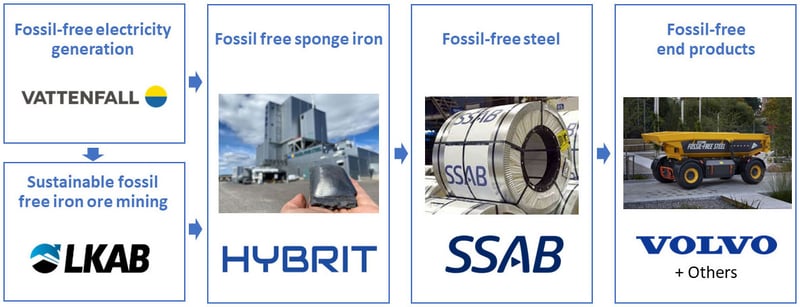
The illustration shows an example of a fossil free and efficient industrial value chain operating at scale enabled by fossil-free electricity. Vattenfall's recent agreement to buy fossil free steel from SSAB is closing the loop.
Annika Ramsköld also attended a UN Global Compact meeting. This initiative aims at making the transition away from fossil dependency just and equitable. Social responsibility plays a central part in the transition. For the energy sector, this means upskilling and reskilling employees and taking areas in which business is conducted, more specifically local communities, into account. Society will change in a local as well as a global dimension.
“The magnitude of the changes that are well underway are big. We are truly living in times of transformation. Our world is changing, and business as well as government are factoring the human perspective as well as nature and biodiversity into the equation. The goal is to take everyone on this journey and make it a just transition. Large funds to bridge gaps that will arise are being prepared. From local citizens to the Global South, we are all in this together, and we need to think broadly in every way,” says Annika Ramsköld.
COP28 was particularly interesting, as it was hosted by a large petrostate, the United Arab Emirates. There were debates about the oil industry trying to influence the direction of the conference. Debates continued when the final outcome was announced. Instead of calling for a complete fossil fuel phase-out, the participants of COP28 could only agree on calling for a transition away from fossil fuels. This is an ambiguous statement.
The declaration, however, clearly recognises for the first time that fossil fuels are the root cause of the climate crisis.
Overall Annika Ramsköld is optimistic:
“A declaration is important, but it is really only a direction. What counts is the its implementation. Large-scale action against climate change has already begun, and the fact that a large majority called for a total phase-out of fossil fuels at COP28 speaks for itself. From all the conversations I have had, it has become abundantly clear that the magnitude of the climate crises is clear to all. The transformation has started. The train is running towards fossil freedom, and no one can stop it, only slow it down at the most. It is all a question of time now. We need to act fast, and everyone who does so will be rewarded in the end, in real life and in our history books. This is a significant moment in time that calls for joint and unified action.”

